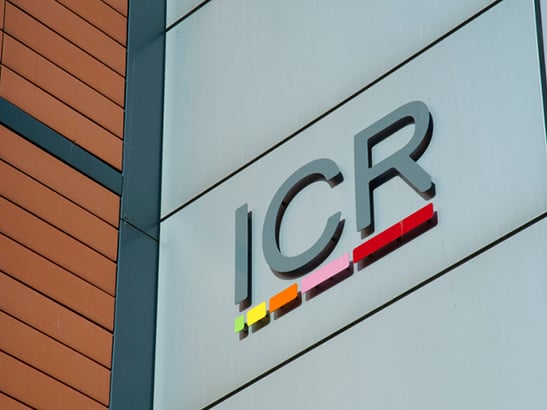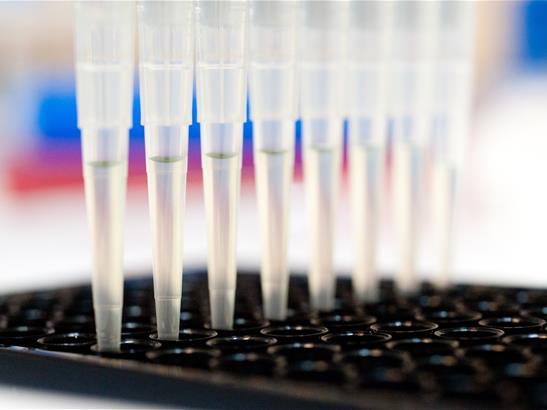News and features
Read the latest news and features about our world-leading research, discoveries, fundraising and philanthropy. If you want to keep updated on our news, you can follow us on social media or sign up for our Search newsletter.
If you’re a journalist and want to find out more, you can contact our media relations team.

Five stunning scientific images of our cancer research
Researchers at the ICR were challenged to capture in a single image their ground-breaking work making the discoveries that defeat cancer.

New molecular ‘building block’ to aid drug discovery
Scientists have discovered how to make a synthetic molecule that could be a key building block in the production of future cancer drugs.
-and-actin-(green)-julia-sero-the-icr-2011.jpg?sfvrsn=14c02140_2)
ICR team is part of winning consortium for Cancer Research UK ‘Grand Challenge’
Scientists from The Institute of Cancer Research, London, are part of a consortium that has won one of the first wave of ‘Grand Challenge’ grants from Cancer Research UK.

Non-profit drug development could cut cost of cancer medicines
Universities should work with new forms of commercial partner to take their own cancer drugs to market and drive down the ‘spiralling’ cost of new medicines, leading experts propose.

Immune system genes linked to most common type of leukaemia
People who inherit genetic variants affecting the function of their immune system are at increased risk of developing the most common form of leukaemia, a major new study reveals.

The ICR responds to decision by NICE not to recommend palbociclib
The Institute of Cancer Research, London, has expressed disappointment that the breast cancer drug palbociclib will not be made available to patients and is calling for urgent discussions to reduce the price of the drug.

Cell shape ‘maps’ could point to new cancer treatments
Scientists have created a ‘map’ linking the shape of breast cancer cells to the activation of their genes, which could point towards new treatments and help improve the effectiveness of immunotherapies.

President Trump, the Cancer Moonshot and the new war on drug pricing
What could the new US administration mean for drug discovery and development – in the US and the UK? Dr Angela Kukula, the ICR's Director of Enterprise, reports back from the world’s biggest life sciences conference, BioWeek SF.

Fundraiser recognised by Prime Minister with Points of Light Award after raising millions for ICR research
Prime Minister Theresa May has celebrated the dedicated fundraising of Lynn Lucas, who set up a Trust to fund research into a rare form of cancer in memory of her son Chris.

Scientists discover powerful new inhibitor of cancer stress signal
Scientists have discovered a powerful new chemical inhibitor that blocks a crucial system used by cancer cells to cope with stress.

Scientists raise warning over drugs targeting key cancer mechanism
Scientists have expressed concerns about developing drugs against two molecular targets that had been considered highly promising, after finding that specifically blocking their function adversely affected normal body systems.

Scientists find how cancer cells can shrug off physical constraints on growth and spread
Scientists have revealed how cancer cells are able to break free of the physical restraints imposed by their surroundings in order to grow and spread around the body.
